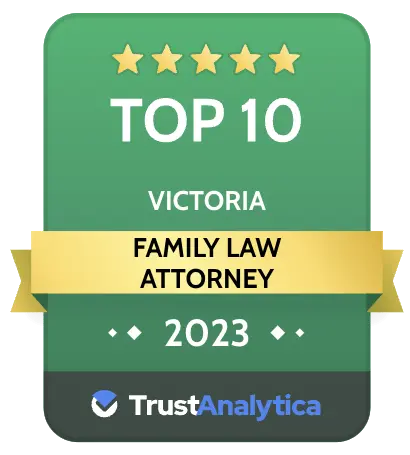Discover more. If your divorce is inevitable, choose the BETTER Path: join our newsletter for supportive, resolution-focused information!
What is Parental Alienation in BC??
- Home
- Parental Alienation
The definition of parental alienation is when one parent tries to undermine or damage their child’s relationship with the other parent. In law, this is regarded as a form of child abuse. Unfortunately, the experience of parental alienation occurs whether you are in BC or not.
When a child, out of the blue, seems to all of a sudden dislike, disrespect, fear, or refuse to see the other parent, it is often the case that a parent has engaged in parental alienation. In many cases, they do this unintentionally. Sadly, in other cases, the parent is doing it intentionally.
If we were to summarize what constitutes parental alienation, we would say that, at its core, the parent manipulates their child’s emotions. They are manipulating their child to turn them against the other parent.
Is Parental Alienation the Same as Parental Estrangement?

As parental alienation lawyers in BC, we’ve seen all kinds of examples of when alienation occurs. Because the legal consequences can be significant, it’s also important to recognize when parental alienation is not occurring — and it may instead be a case of parental estrangement.
There are cases where children no longer want to spend time with one parent — not because of parental alienation, but because there are valid reasons for the child’s reluctance. This is referred to as parental estrangement.
An example of parental estrangement might be when an ex-partner gets a new spouse or partner, and that person is nasty or mean to the child. Yes, it’s true — the “wicked stepmother” can be a thing. It isn't common but it does happen.
In one case we handled at Pathway Legal, a child was treated so badly by her stepmother that she no longer wanted to spend time with her father when the stepmother was present. Initially, the child was afraid to tell her father what was happening. As a result, the father believed he was being alienated. However, once the child was interviewed, it became clear what the real problem was.
The truth is that sometimes a parent fails to do the job of good parenting. In those cases, it is not considered to be parental alienation, but parental estrangement
Is Parental Alienation Just a Brief Bumpy Beginning?
As family law lawyers, we see that a lot of the time when parents first separate, there can be a brief period of high conflict. This tends to settle down quite quickly. There can, at the beginning, be bumpy parts as everyone in the family gets used to the “new normal.” Even when parents are hoping to engage in an amicable divorce process, parents are often tense, stressed, and fearful as they adjust to their new lives post-separation. This tension almost always spills over to their children.
Although these bumpy parts are normal, it is important that parents pull it together very quickly so their children are not exposed to a high-conflict custody battle or other issues. As well, it becomes a very serious issue if parental alienation abuse starts to occur.
The great news is that despite us seeing many examples of parental alienation, most parents do not engage in this kind of behaviour. Most parents want what is best for their kids.
This means that parents who may have said the occasional “wrong” thing in front of their kids quickly learn to manage their behaviour.
Parental alienation abuse, on the other hand, is when a parent does not stop trying to denigrate or disparage the other parent. They attempt and sometimes succeed at emotionally manipulating their child so that the child turns against the other parent. The child ends up with unjustified negative feelings towards the parent who has been targeted by the one engaging in the alienating behaviours. The child becomes the object of the alienating parent's campaign.
At Pathway Legal, we see that most parents want to have an amicable divorce and they will do their very best when co-parenting after divorce.
Is Parental Alienation Abuse?
Make no mistake about it, parental alienation is just a form of child abuse.
This is because it is very, and we mean VERY damaging for a child to be exposed to parental alienation tactics.
Studies show that parental alienation is so bad for kids that it affects the ability of their brains to develop in a healthy way. Children exposed to high-conflict custody battles that include parental alienation have a much higher likelihood than other kids of quitting school, becoming addicted to drugs and alcohol, and having dysfunctional adult relationships themselves.
It makes you wonder why a parent would ever engage in what is considered parental alienation.
What’s the Difference Between Parental Alienation and Parent-Child Estrangement?
There is a difference between parental alienation abuse and parent-child estrangement.
Parental alienation is when a child has been exposed to a campaign by a parent to turn them against the other parent. Estrangement is when the child does not wish to spend time with one parent because that parent is not meeting the child’s needs.
As an example, a parent who disrespects their child, is overly strict, or behaves unkindly may lead to parent-child estrangement.
What Triggers Parental Alienation?
Because parental alienation abuse is so serious and damaging, you might ask why a parent would ever engage in it.
In our experience at Pathway Legal, dealing with BC Family Law and cases of parental alienation syndrome, it is almost always because a parent has a personality disorder.


Whether the parent has borderline personality disorder, histrionic personality disorder, or engages in narcissistic parental alienation, it is clear that a personality disorder is present.
Here is the great news: Most parents don’t.
Although there is often a bumpy phase when parents first separate as everyone gets used to the new way of living, once the parties reach an agreement, things manage to smooth out somewhat. For many parents, at least after their initial separation phase, they get on with the job of co-parenting after divorce with few hiccups.










